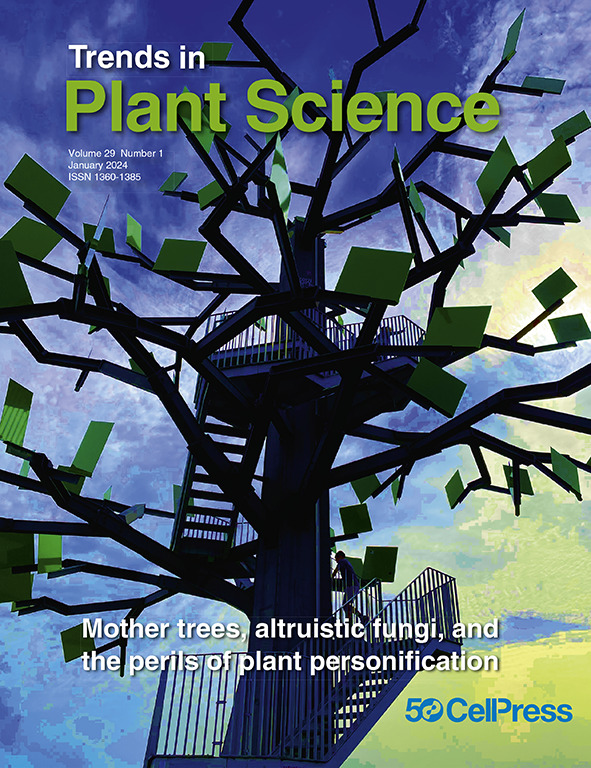能否在植物体内设计出固氮细胞器?
IF 17.3
1区 生物学
Q1 PLANT SCIENCES
Trends in Plant Science
Pub Date : 2024-11-01
Epub Date: 2024-07-24
DOI:10.1016/j.tplants.2024.07.001
引用次数: 0
摘要
鉴于农作物产量受到氮的严重限制,对农作物进行工程改造使其具有自氮肥能力,为可持续农业带来了巨大希望。最近,一种固氮细胞器在单细胞海洋微藻 Braarudosphaera bigelowii 中得到了表征。将固氮细胞器工程化到非固氮作物中,既有利于环境的可持续发展,也有利于全球粮食安全。本文章由计算机程序翻译,如有差异,请以英文原文为准。
Can a nitrogen-fixing organelle be engineered within plants?
Given that crop yields are strongly limited by nitrogen, engineering crop plants with self-nitrogen-fertilization capacity holds great promise for sustainable agriculture. Recently, a nitrogen-fixing organelle has been characterized in the unicellular marine microalgae Braarudosphaera bigelowii. Engineering a nitrogen-fixing organelle into the non-nitrogen-fixing crops could benefit both environmental sustainability and global food security.
求助全文
通过发布文献求助,成功后即可免费获取论文全文。
去求助
来源期刊

Trends in Plant Science
生物-植物科学
CiteScore
31.30
自引率
2.00%
发文量
196
审稿时长
6-12 weeks
期刊介绍:
Trends in Plant Science is the primary monthly review journal in plant science, encompassing a wide range from molecular biology to ecology. It offers concise and accessible reviews and opinions on fundamental plant science topics, providing quick insights into current thinking and developments in plant biology. Geared towards researchers, students, and teachers, the articles are authoritative, authored by both established leaders in the field and emerging talents.
 求助内容:
求助内容: 应助结果提醒方式:
应助结果提醒方式:


